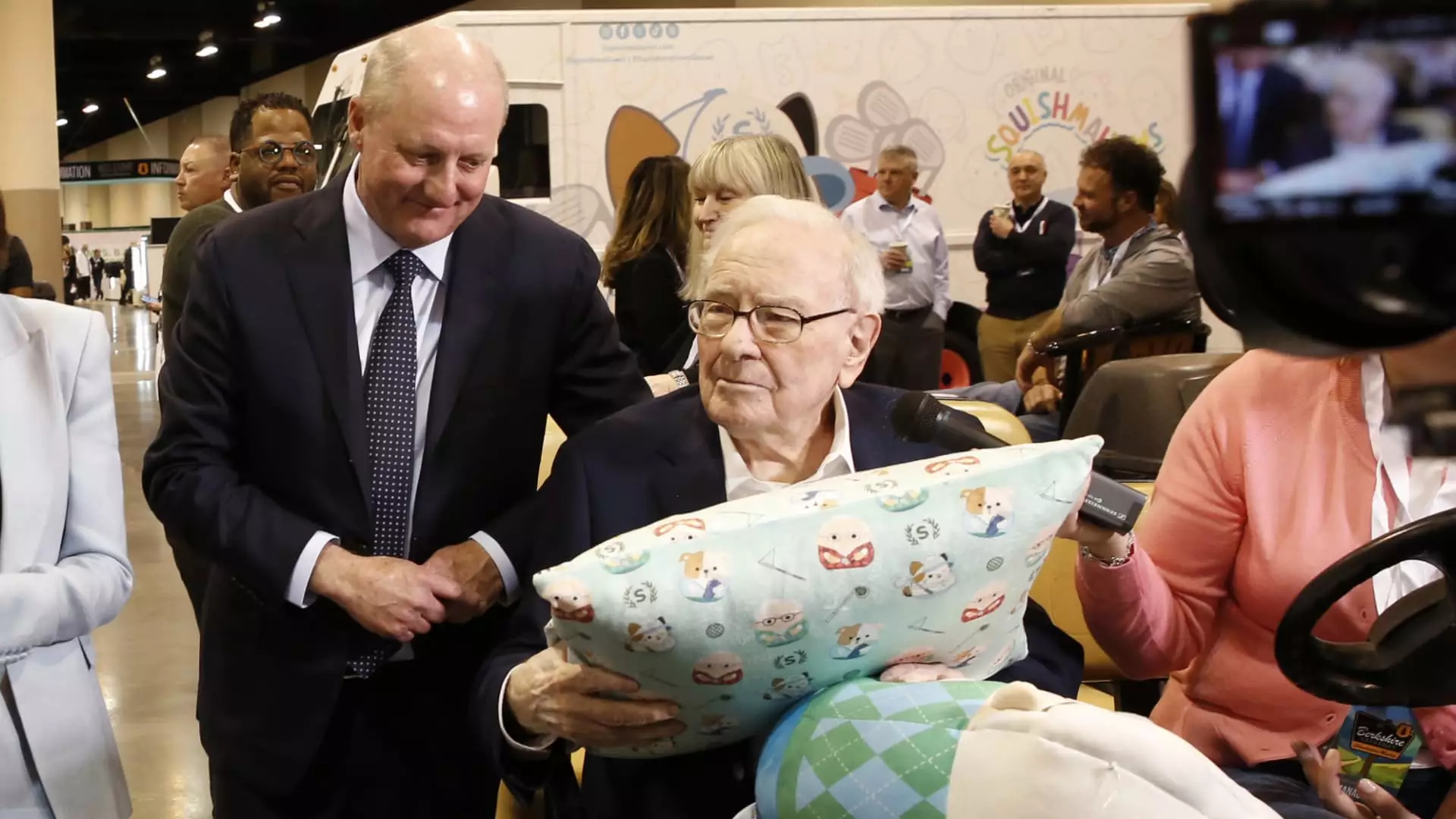In a surprising turn of events, Berkshire Hathaway’s Class B stock witnessed an influx of over $24 million from retail investors on a recent Monday. This remarkable figure not only underscores the ongoing faith in the company’s future but also illustrates a significant shift away from the idea that the firm is merely a shrine to Warren Buffett’s legacy. The substantial investment marked the highest single-day net inflow since 2016, showcasing an intriguing paradox: despite a dip in stock prices—declining over 5%—investors seem undeterred by the monumental leadership transition on the horizon.
In a climate often characterized by fear and uncertainty, it’s crucial to dissect the motivations behind such an influx. Retail investors, commonly perceived as skittish and reactionary, demonstrated a refreshing level of confidence in incoming CEO Greg Abel. This departure from typical behavior illustrates that everyday traders may not be as tethered to Buffett’s shadow as analysts typically assume. The contrast between the enthusiasm of retail investors and the market’s immediate reaction reflects a deeper understanding of the evolving investment landscape and the financial resilience of Berkshire Hathaway itself.
Buffett’s Departure: A Cultural Phenomenon
Much of the emotional weight tied to Berkshire Hathaway stems from the veneration of Buffett himself—the “Oracle of Omaha.” During the recent meeting, his announcement to step down triggered mixed reactions, as attendees honored his legacy while grappling with the implications of his departure. The now-iconic gathering in Omaha has evolved into a cultural phenomenon, with fans eagerly displaying memorabilia and even purchasing plush toys resembling the investing legend. Even as Buffett intends to adhere to a less hands-on role, his counsel and monumental presence will continue to shape the company’s ethos.
However, this isn’t merely a story about nostalgia. It speaks to the age-old struggle of any enterprise following the exit of its charismatic leader. Market observers ponder whether Abel will possess the same acumen that made Buffett’s investment strategy lore-worthy among the average investor. Abel’s track record, especially in stock selection, isn’t scintillating by any means. Thus, while his ascent to leadership is met with skepticism, it raises an important question about the nature of investment confidence: is it ever truly about the individual, or is it about the underlying company resilience?
An Increasingly Divided Market Landscape
At the core of this metamorphosis lies a broader narrative about market dynamics and investor behavior. Berkshire Hathaway has amassed a staggering cash reserve of over $330 billion, making it a veritable fortress against economic downturns. Herein lies the market’s paradox: while traditional indicators call for caution, the savvy investor may view Berkshire as a bastion amid looming economic challenges. This confidence suggests a rebranding of value investing in the modern context—an approach rooted in fundamental strength but guided by behavioral finance insights.
Despite the erratic ebb and flow of stock prices, particularly following Buffett’s announcement, the long-term trajectory for Berkshire Hathaway—despite downturns—remains commendable. With shares hovering over 13% growth in 2025, the company vastly outperforms the S&P 500, which has faltered by over 4% this year. In contrast, when everyday investors seem to exhibit a fundamental understanding of market cycles and anticipate downturns with smart investments in resilient companies like Berkshire, it calls for market analysts to reconsider their paradigms regarding retail investor behavior.
The Institutional Empathy Gap
Furthermore, what we see here might be a revelation of a significant empathy gap between institutional investors and retail traders. This stark divergence often results in broad-reaching misinterpretations about market sentiment. Conventional wisdom suggests that we are firmly entrenched in a world of algorithm-driven trading strategies which sideline the “average investor.” The confidence displayed by retail investors in the face of potential disruption challenges the very foundations of this narrative.
Retail investors seem to possess a unique comprehension of Berkshire’s underlying cultural capital, the emotional aspect of value investing that institutions may overlook. This long-standing adoration of the company’s mission and values provides reassurance to individual investors, nudging them towards bullish action despite apparent market volatility. Perhaps it brings to light an essential truth: the relationship between investors and businesses often transcends pure financial metrics.
Without a doubt, the forthcoming exit of Buffett heralds an era of uncertainty. Nonetheless, it simultaneously catalyzes an evolution in the perception of investment, embracing a wider range of human factors that influence financial markets. As Greg Abel prepares to take the helm, an interesting narrative unfolds—one that might redefine what it means to be a successful investor in the ages to come.

Leave a Reply